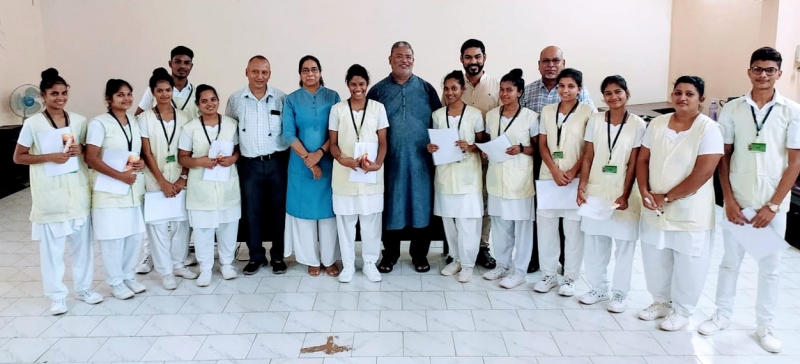Real empathy for the sick can come by having a robust healthcare system that cares for them

The annual celebration of ‘World Day of the Sick’ held on February 11 was instituted by Pope John Paul II on May 13, 1992. It is an occasion to show solidarity with those who are sick.
The Church in Goa, through Caritas-Goa, a Catholic relief and development agency, has been constantly showing solidarity with the sick through various initiatives.
In June 2019, Archbishop Filipe Neri Ferrao, launched ‘CanSurvive’, a cancer support network under the aegis of Caritas-Goa. This initiative creates awareness about cancer, cancer prevention lifestyle and cancer management by networking with oncologists, surgeons, NGOs and civil society groups.
Solidarity with the sick is all about providing access to quality healthcare and delivering meaningful care to the afflicted and suffering, especially those living in poverty.
According to the World Health Organisation (WHO), half of the world’s 7.3 billion people do not have access to essential health services, 12 per cent of the world’s population (around 800 million) has to spend 10 per cent of their income on healthcare and almost 180 million people become severely poor because they spend a quarter or more of their income on their medical expenses.
According to a research by Quais Fatehi, ‘Planning for Health System Development - Goa 2001 to 2011,’ the overall standard of health is still abysmally low. It says that large sections of the population are not provided with health services, while the operational network of the primary facilities is unstable.
What kind of healthcare exists for people living below the poverty line in Goa? At present, the government has undertaken healthcare reforms for the poor in the form of yojanas or public-private partnership insurance programmes.
C A K Yesudian, Professor and Dean of the Tata Institute of Social Science’s School of Health System Studies, feels these are mere political posturing rather than having a permanent solution to Goa’s healthcare woes. The poor either don’t know that the Yojanas exist, or they are shooed away when they go to the hospitals.
Solidarity with the sick is about empathy. It is an act of getting in touch with things that really matter. Solidarity with the sick arises when we remember that we belong to each other; it spurs us to stand side by side with our distressed brothers and sisters and unburden them.
Humans suffer in different ways and to different degrees. Suffering is a constant theme throughout human existence. Some consider suffering as retribution for wrongdoing, while some perceive it as a test of righteousness. Whatever be the reasons, the sick have to experience solidarity. The healthy have a responsibility to unburden the afflicted and the suffering.
In our times, Covid -19 has come as a blessing to grow in solidarity with the sick. It could be termed as a pandemic of solidarity. Individuals, communities and healthcare workers have been demonstrating unusual levels of solidarity, with thousands of patients infected with coronavirus and hundreds of grieving families who have lost loved ones.
In the Bible, the parable of the Good Samaritan expounds ‘love of neighbour’ meaning sensitivity to those who suffer. This has to be manifested through the pure human element of compassion and, more importantly, through concrete actions.
The Good Samaritan shows compassion by giving his all, even his very self, for the suffering victim. Such a virtue of ‘love of neighbour’ overcomes indifference to suffering and adds to human solidarity with the sick.
(The writer is a member of the Society of Pilar. He has a Doctorate in Clinical Counselling Psychology from the Philippines)